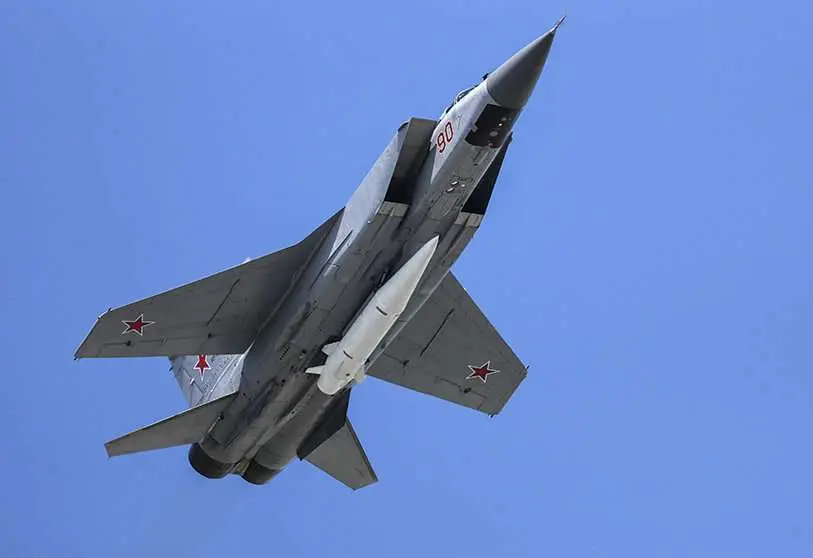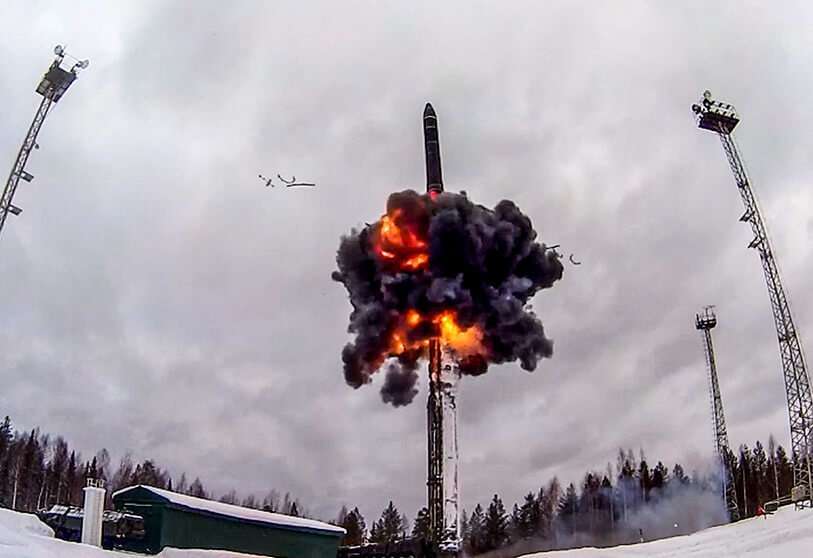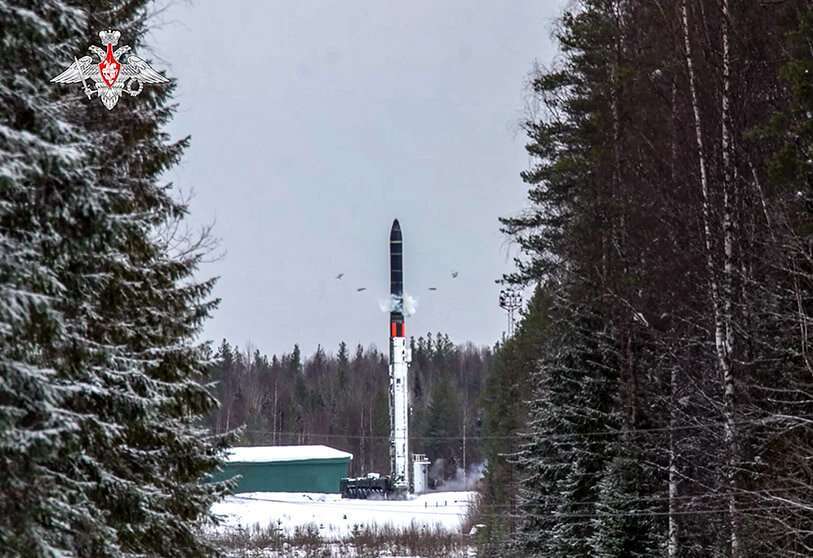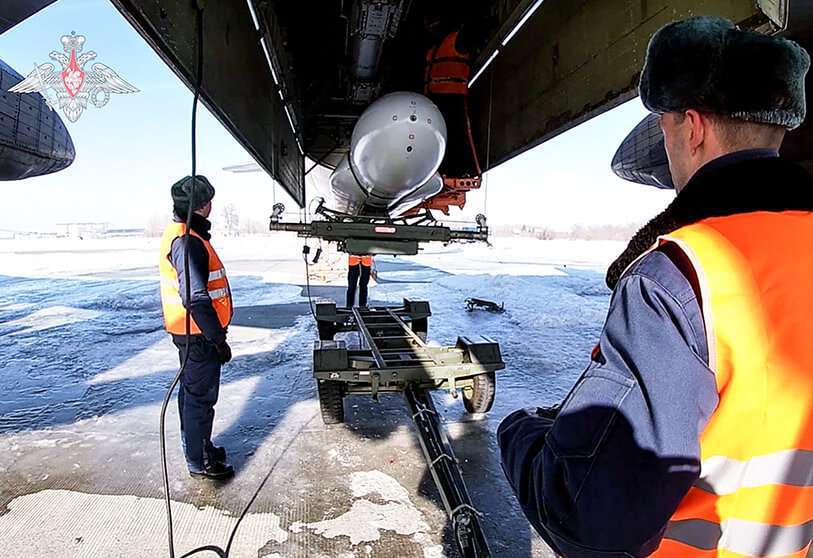It is now also a psychological war

Whoever's hand trembles will drop the egg held with the spoon. The most nervous will lose. In the invasion of Ukraine, in this excessive clash of forces, between a country without nuclear technology against another that possesses 4,477 nuclear warheads, a huge clash of interests is taking place.
This war will not end until Vladimir Putin decides. The ambitious Russian dictator and former KGB agent has had a clear plan in mind for years and in it several scenarios, and meticulous as he is, each one contemplates the possible response from the West.
In this war we are Putin's puppets. And we need to keep a cool head and improvise less on the fly. NATO has demonstrated a capacity to react, but the only military intelligence showing its extensive skills and capabilities is that of the United States, which has been warning the world since early December of the Kremlin's intentions to invade Ukraine.
NATO must work out its joint reaction scenarios to this war that is dragging on day by day and in which there is no great hope for peace despite Turkey's mediation efforts, with Prime Minister Recep Tayipp Erdogan himself getting involved, not only by making his territory a basis for negotiation but also by calling on Putin himself to cease hostilities.

Putin has his own Trojan horse. In the first month of this conflict, Russia has launched 1,200 ballistic and cruise missiles, 40 missiles a day, mainly aimed at destroying cities and killing civilians. President Volodymir Zelensky himself claims that more civilians have been killed by the siege than Ukrainian military personnel, so the real intention of the invasion is not to destroy military infrastructure but to raze cities, devastate them and empty them of their population because they are either killed by a missile or evacuated.
Why does he want to empty cities? We see this in the case of Mariupol, a coastal city with a population of 446,103 inhabitants, where 170,000 people are still hiding in cellars and makeshift bunkers. The new humanitarian corridors will finish evacuating the stragglers, leaving behind a ghost town, but with transcendental logistics due to its exit to the Sea of Azov and its proximity to the pro-Russian areas of Donetsk and Lugansk that the Kremlin is so interested in controlling.
There is a deliberate tactic to empty certain cities that are relevant to Putin's medium- and long-term plans. This invasion is actually geo-economic and geo-strategic, although it was initiated under the pretext of preventing Ukraine from one day joining NATO, and even justified, to denazify Ukraine.
Putin does not want to achieve through peace what he wants to achieve at the cost of sending his own troops to their deaths, whose casualties are estimated at between 13,000 and 17,000 fallen soldiers; he does not even care to burn money on each missile detonated, in figures of between 700,000 and 1 million euros depending on their degree of range and sophistication.

In addition to that, there are two sunken warships, each costing an average of 4 billion euros, plus a hundred or so tanks costing around 15 million euros each. All the ammunition and other artillery used, plus the salaries not only of the Russian soldiers themselves, but also the salaries of the Chechen and Syrian soldiers, plus the military services of the Wagner Group, should be added to the sum.
A little more than a month after the invasion began, the war in Ukraine is proving extremely costly for Russia. For Putin, what he is trying to achieve must be very precious, because to believe that he will be satisfied with the Donbas region alone would be utterly naïve, as would be to attribute a willingness to negotiate to a character who, throughout his life and in the exercise of power, has never demonstrated negotiating skills; it is enough to see how the regrettable terrorist episodes in Russia have ended: with terrorists killed and hundreds of Russians massacred by the liberating security forces themselves, operating under Putin's orders. He does not tempt his heart
This is already an economic war, a media war, a war of fake news, of images, of content on social networks and verbal; it is also a war of propaganda, a war of course of visuals and of positioning in discourse; a war of confusion that at the same time pursues freedom of expression and puts the spotlight on journalists as enemies in order to silence them, thus denying the world truthful information. No less than twelve colleagues have been killed by Russian fire, artillery and missiles. It lacks ideological warfare but so far it is not.
However, it has already jumped into the psychological sphere as well. The war is playing on the nerves of Zelenski, Putin, Biden, NATO as a whole and ourselves.

And that puts us on more dangerous ground because the unpredictability of the conflict increases fear and deepens bewilderment and, above all, uncertainty. Moving in this terrain in which there is no way to have expectations other than to expect the worst every day leads to a very significant moral erosion. Putin is playing this to his advantage, that he will eventually bring not only Ukraine, but the West, by default, to its knees in weariness and exhaustion. And if we let our guard down then we will be in his hands.
They have begun to play with our expectations from the very moment of setting up a negotiating table where they send a message, but do exactly the opposite by giving no hint of a ceasefire.
One should take the decree signed by Putin to recruit 134,500 men - from 1 April to 15 July - from the age of 18 onwards with a cool head. Even more so when Russia claims to have used two hypersonic Kinjal (Dagger) missiles in Ukraine, a technology that only Russia and China have and for which there are no systems capable of detecting and destroying them. They are the Devil's bullet because they can carry both conventional and nuclear warheads. That's playing on people's nerves because it puts fear in the body.

